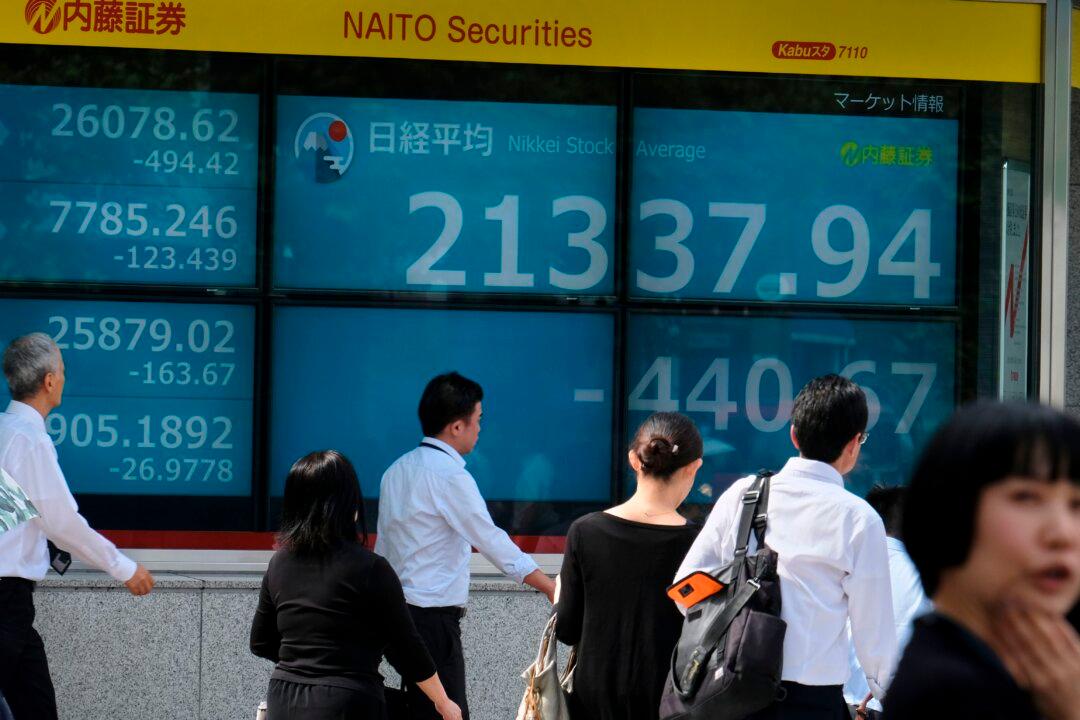TOKYO—Japan will tighten reporting requirements for foreign investment in industries related to national security, officials said on Oct. 8, reflecting broad concern that China could gain access to key technology and confidential information.
Under the change, expected to become a law next year, foreign investors in Japan’s defense industry, nuclear power, utilities and telecoms will have to report holdings once they amass a 1 percent stake in a company, as against 10 percent now.





